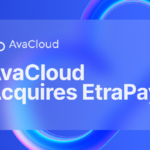A rising variety of international corporations are turning to blockchain expertise and different rising applied sciences to enhance the effectivity of their operations, with operators within the transportation and maritime sectors main the cost.
Railway operators in Japan, France, and Indonesia are doubling down on new ticketing expertise, specializing in facial recognition and blockchain. A various group of operators are establishing their presence within the rising expertise ecosystem by incorporating QR codes, synthetic intelligence (AI), and near-field communication (NFC) expertise within the transportation sector.
SNCF, France’s nationwide rail operator, has rolled out a collection of assessments involving blockchain-based digital IDs for ticketing. Leaning on the France Identité cell app, passengers should present the ticketing officer a QR code containing identification knowledge and seating preparations.
Experiments with the cell app have been underway since 2024, and the SNCF is hinting that it could prolong the assessments to new routes and trains.
Within the Far East, Japanese-based Keisei Electrical Railway Firm (Okay’SEI) has introduced a brand new photograph recognition providing to ease the ticketing process at stations. Dubbed the Face Verify in Go, the brand new system goals to scale back lengthy crowds by half, encouraging different railway operators within the nation to observe go well with.
Neighboring Indonesia’s state-owned railway service can also be using the ability of rising expertise. The Kereta Api Indonesia (KAI) disclosed that over 10 million passengers have used its facial verification providing since its rollout in 2022. KAI President Didiek Hartentyo famous in an interview that the system has eradicated the necessity for paper tickets in Java and Sumatra given its seamless person interface.
As operators gallop ahead with next-gen applied sciences, pundits are making a case for decentralization to guard passengers’ private knowledge. Knowledge assortment has surged in tandem with rising ticket evasion schemes, forcing railway operators to gather and retailer swathes of passengers’ knowledge.
A number of high-profile knowledge leaks involving rail operators in the USA, India, and the Netherlands have pressured {industry} gamers to discover new methods to guard private data.
Enterprise capital agency Key State Capital argues in favor of a blockchain answer to guard railway operators from scathing knowledge leaks. The agency cites Zero-Information Proofs (ZKP) programs that enable passengers to share solely obligatory knowledge with operators and blockchain’s immutability as causes for an industry-wide change.
A examine by the College of Birmingham strongly advocates for rail service suppliers to undertake on-chain ticketing programs, pointing to price effectivity and transparency for events. In a sensible use case, India is leaning on blockchain for its tamper-proof signaling capabilities following a tragic accident that claimed over 300 lives.
Delivery sector driving the blockchain increase
Whereas blockchain expertise has planted its ft within the provide chain {industry}, a brand new partnership is exploring its use for paperwork involving hazardous cargo in ships.
The association involving COSCO Delivery Traces (COSCO) and the World Delivery Enterprise Community (GSBN) seeks to leverage blockchain because the underlying structure of hazardous cargo documentation.
The duo has since rolled out a pilot program in late 2024, tapping Chinese language-based Longxing Chemical Inventory Co., Ltd. to hitch the research. The experiments concerned creating on-chain documentation in step with {industry} greatest practices and security procedures.
The pilot noticed COSCO ferry Longxing Chemical’s carbon black, a flammable materials deployed in rubber manufacturing, to its touchdown port. In a powerful present of innovation, COSCO turned to GSBN’s blockchain-based infrastructure for documentation, marking a transition from the standard bottlenecks related to tedious paperwork.
Transporting hazardous supplies requires strict compliance with security certifications however ticking the packing containers is commonly fraught with delays and steep prices.
Pundits say that if cargo homeowners present security certifications, delivery companies can confirm their authenticity in file time utilizing blockchain-based programs. Within the pilot program, individuals turned to GSBN’s China Nationwide Accreditation Service for Conformity Evaluation (CNAS) to confirm Longxing’s certifications.
Contributors say the pilot simplified the documentation course of whereas streamlining audit effectivity utilizing on-chain options. Specialists consider that utilizing this mannequin throughout the {industry} will assist stop surprising incidents on ships and cease using faux paperwork.
The pilot is the primary time that COSCO and GSBN are exploring a blockchain-based certification mannequin with each events tinkering with the concept for the larger a part of a 12 months.
The present state of the worldwide delivery {industry} reveals a migration to blockchain expertise in an effort to maintain up with the searing tempo of digitization. In Hong Kong, delivery operators are ditching conventional paperwork for blockchain-based digital payments of lading (eBL) powered by GSBN.
Since their rollout in 2023, the GSBN initiative has recorded over 200,000 on-chain eBLs, leaning on a 3rd get together for valuation and tokenization.
India has additionally unfurled plans to make use of blockchain to revolutionize its maritime {industry} with the Philippines and Japan doubling on their current digitization efforts.
Watch: With blockchain, the utility is changing into increasingly more necessary
title=”YouTube video participant” frameborder=”0″ enable=”accelerometer; autoplay; clipboard-write; encrypted-media; gyroscope; picture-in-picture; web-share” referrerpolicy=”strict-origin-when-cross-origin” allowfullscreen>









